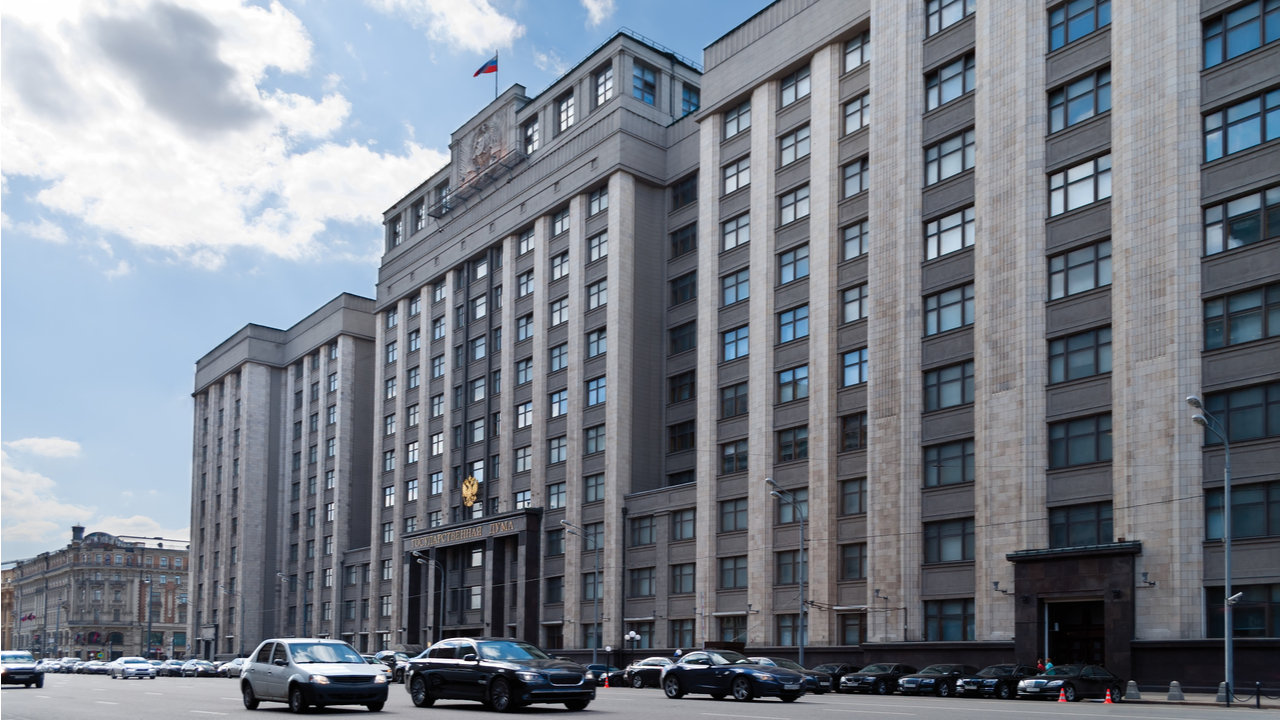
Only a small share of cryptocurrency transactions have illicit purposes and the use of digital coins in illegal activities is for the most part a myth, a high-ranking Russian lawmaker has recently stated. Andrey Lugovoy, who is one of the deputies working on new crypto regulations, also said Russia can become a global leader in crypto mining.
Russian Developers Working on Software Detecting ‘Dirty’ Cryptocurrency
The illegal use of cryptocurrencies is largely a myth, according to Andrey Lugovoy, a member of the working group on crypto regulation at the State Duma, the lower house of Russian parliament. “According to the largest crypto exchanges, no more than 4 to 6% of the cryptocurrency turnover is involved in illegal activities,” the lawmaker told Parlamentskaya Gazeta.
Lugovoy, who is also deputy chairman of the security and anti-corruption committee, pointed out that there are effective tools to identify wallets that are employed for illicit purposes such as those offered by blockchain analytics firms Chainalysis and Crystal. He added that Russian IT developers are also working on domestic software capable of detecting “dirty” cryptocurrency.
“According to experts, cash is used in illegal activities in the amount of 11 to 13 % of the turnover,” the deputy noted. He is convinced that the introduction of transparent crypto regulations in Russia, along with the identification of digital currency users, will make it possible for the government to combat income concealment.
This week, the parliamentary Financial Market Committee approved amendments that will allow the taxation of operations with cryptocurrencies while the Ministry of Finance backed proposals from Russian law enforcement agencies for the new law “On Digital Currency”. Both pieces of legislation should be adopted during the Duma’s spring session to comprehensively regulate the Russian crypto space, along with the law “On Digital Financial Assets,” which went into force in early 2021.
Andrey Lugovoy has in previous statements rejected calls to impose a blanket ban on crypto-related activities in the Russian Federation. He now admits there is a wide consensus among government institutions in Moscow that cryptocurrencies cannot be used for payments. Bitcoin and the like should be defined as property in the new legislation, he added in his recent interview.
At the same time, Russian authorities do not plan to introduce any restrictions on the ownership of crypto assets, the member of the Duma emphasized. However, cryptocurrency owners will likely be obliged to declare their digital holdings to the state.
The legislative changes also aim to bring millions of “grey” crypto miners out of the shadows, Lugovoy said. He highlighted Russia’s contribution to this market, with close to 12% of the global bitcoin hashrate, and ranking third among mining destinations. Given the country’s cold climate and surplus of low-cost electricity, Russia can become the world’s mining leader, the lawmaker elaborated.
Do you expect Russia to adopt a crypto-friendly regulatory framework and reconsider its stance regarding crypto payments? Tell us in the comments section below.
from Bitcoin News https://ift.tt/qsVjyGi
Comments
Post a Comment